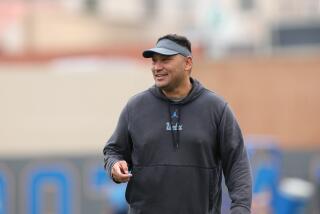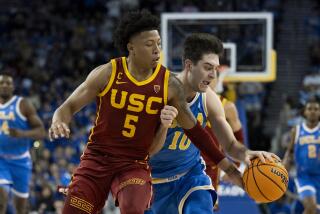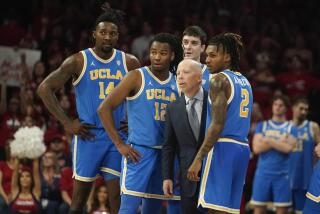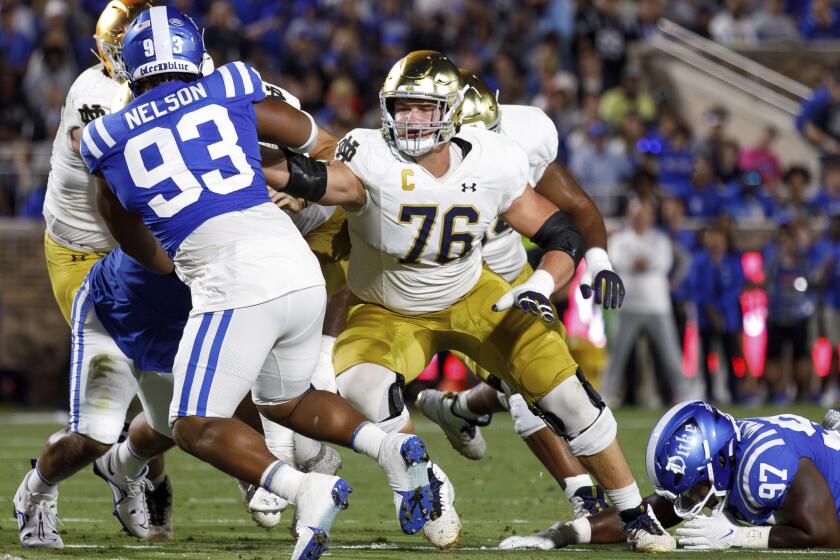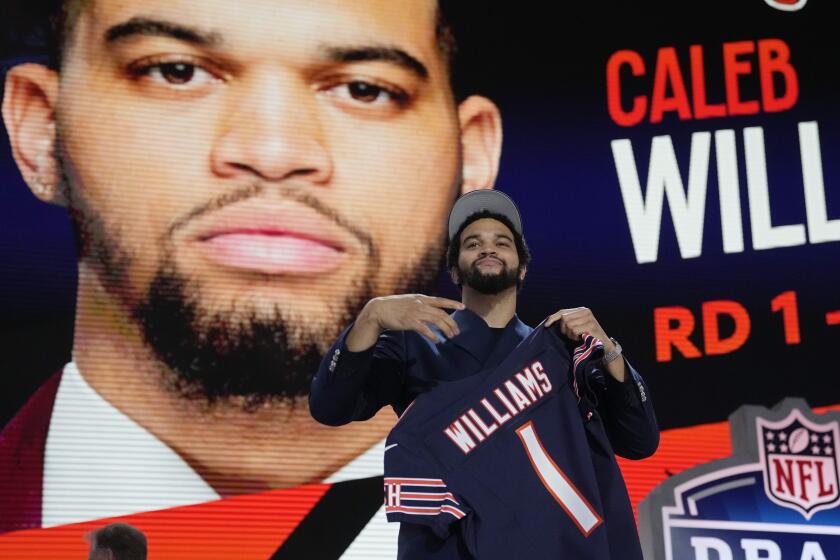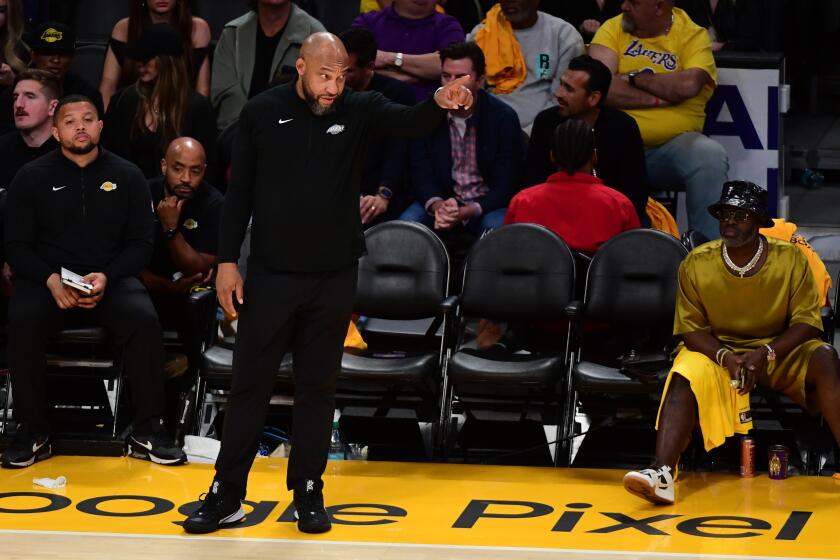UCLA’s defense will face a blur of a challenge against high-scoring, up-tempo Detroit Mercy
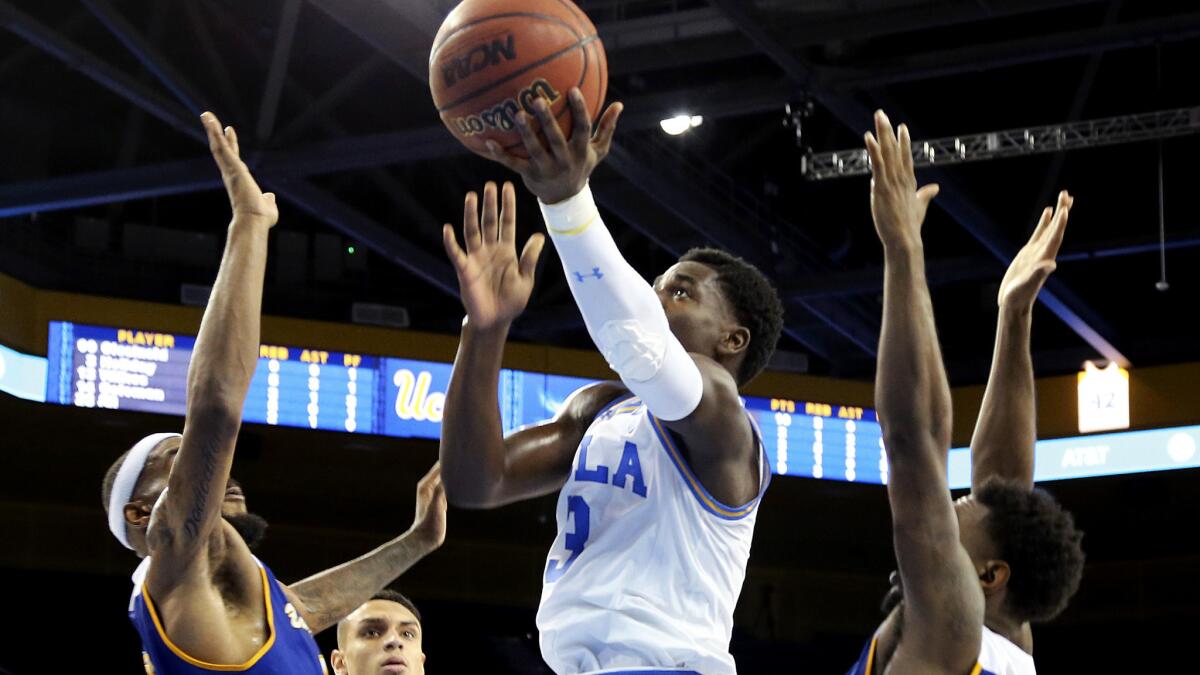
UCLA coach Steve Alford’s early assessment of his team was somewhat unsettling: The Bruins weren’t who they thought they were on defense.
“Coming back from Kansas City,” Alford said this week, “we thought that was our glaring weakness of a team that shouldn’t be bad defensively.”
Before the season, Alford touted his team as one that had the length, athleticism and depth to defend at a high level. The indefinite suspensions of freshmen LiAngelo Ball, Jalen Hill and Cody Riley deprived the Bruins of some of that depth, but they still were a long and springy bunch.
It didn’t translate to many stops through the first five games. UCLA twice yielded 100 points while struggling to defend inside or outside the three-point line.
Then came some glimpses of the defense Alford thought he would see. The Bruins made life miserable around the basket for UC Irvine before showing they could defend the perimeter against Cal State Bakersfield. The strong showings allowed UCLA (6-1) to prevail comfortably in those games despite making a combined seven of 34 three-pointers (20.6%).
The Bruins said they were encouraged that their shooting struggles didn’t allow their defensive effort to sag.
“It’s great that you can still win when shots aren’t falling like that,” UCLA center Thomas Welsh said after his team made only two of 17 three-pointers against Bakersfield. “That’s going to be a big point for us.”
A comparison of UCLA’s defense this season versus last season has shown some encouraging trends. The Bruins’ adjusted defensive efficiency ranks No. 73 in the nation, according to analytics site kenpom.com, after ranking No. 85 last season.
The defense will face a blur of a challenge Sunday at Pauley Pavilion against Detroit Mercy (4-3), which is averaging 93.7 points per game, almost 10 more than UCLA. The Titans’ average possession lasts only 14.8 seconds, according to kenpom.com, slightly longer than UCLA’s average possession length of 14.3 seconds, which is the ninth-shortest in the country.
“We obviously like to run,” Bruins guard Aaron Holiday said, “and if they like to run, then we’ll have a very quick game.”
One significant difference is what the teams have done with their possessions. UCLA’s adjusted efficiency on offense ranks No. 32 in the country, while Detroit Mercy’s ranks No. 197 .
“I look for a game that’s going to be very fast-paced,” Alford said, “because everything that I’ve heard, they like to play up and down and they like to play fast, and obviously we’re pretty good in transition so it should be a fast game.”
::
UCLA VS
DETROIT MERCY
When: 6 p.m. Sunday
Where: Pauley Pavilion
On the air: TV: Pac-12 Network; radio: 1150
Update: Welsh could be forgiven this week for not knowing his team’s history against Detroit Mercy; he was only 3 years old when the 12th-seeded Titans upset the fifth-seeded Bruins 56-53 at the RCA Dome in Indianapolis in the first round of the 1999 NCAA tournament. Jermaine Jackson, now an assistant coach for Detroit Mercy, led the Titans with 17 points. “That’s good to know,” Welsh said when informed of the outcome of the only previous meeting between the teams.
Follow Ben Bolch on Twitter @latbbolch
More to Read
Get our high school sports newsletter
Prep Rally is devoted to the SoCal high school sports experience, bringing you scores, stories and a behind-the-scenes look at what makes prep sports so popular.
You may occasionally receive promotional content from the Los Angeles Times.

